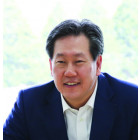Video
Events
Recent Events
Influence of the Internet on Public Opinion
- Expert
- Hahm Chaibong
- Hit
- 1,950
- Date
- 10-10-26 15:00
The Asan Institute for Policy Studies hosted a Roundtable on the topic “Influence of the Internet on Public Opinion” on October 27, 2010. In this roundtable moderated by the Asan Institute Director Hahm Chaibong, Professor Kwon Sanghee (Sungkyungwan University Department of Journalism), Professor Yum Yoosik (Yonsei University Department of Sociology), Professor Lee Junoong (Seoul National University Department of Journalism), and Professor Hwang Sangmin (Yonsei University Department of Psychology) presented and discussed on the topic.
The rapid advancement in information and communication technology increased the participation in political discussions and demonstrated the possibility of a deliberative democracy through associations. Professor Yum Yooksik said that according to a study on public opinion on the Internet regarding influenza, personal blogs have the greatest influence while government agency websites which provide detailed information on cause and prevention of diseases have the least influence. As a result of the advance in communication technology, the previously “government-led policy environment” is quickly moving toward a “networked civil society.” Despite the many benefits, the Internet is also a source of various myths, rumors, conspiracies, and cyber bullying. According to Professor Hwang Sangmin, when an angry and frustrated majority attacks the successful minority on the Internet, many people can jump on the bandwagon and further fan the flames. The success of a minority fuels the sense of victimization of the majority, and the Internet provides a medium through which people can express this sense of victimization.
This phenomenon suggests that until the society can become a true democracy, there will be many trials and difficulties. Professor Kwon Sangmin said that the cyber culture promotes information chain reaction and group polarization and therefore hinders the distribution of accurate information, which is an essential element of democracy. Through this roundtable, the Asan Institute discussed both the positive and negative aspects of the “Influence of the Internet on Public Opinion” and laid out guidelines that would ease the transition of a democracy into the Internet Age.

Hahm Chaibong
President
Dr. HAHM Chaibong is the president of the Asan Institute for Policy Studies. Previously, he was a senior political scientist at the RAND Corporation in Santa Monica, California, professor in the School of International Relations and the Department of Political Science as well as the director of the Korean Studies Institute at the University of Southern California, Director (D-1) of the Division of Social Sciences Research & Policy at UNESCO in Paris, and a professor in the Department of Political Science at Yonsei University. Dr. Hahm is the author of numerous books and articles, including “China’s Future is South Korea’s Present,” Foreign Affairs, (Sep/Oct 2018), Hanguk Saram Mandeulgi (Becoming Korean), Vols. I, II, (Asan Academy, 2017), “Keeping Northeast Asia ‘Abnormal’: Origins of the Liberal International Order in Northeast Asia and the New Cold War,” Asan Forum (Sep., 2017), “South Korea’s Miraculous Democracy,” Journal of Democracy (Jul., 2008), “The Two South Koreas: A House Divided,” The Washington Quarterly (Jun., 2005), and Confucianism for the Modern World (co-edited with Daniel A. Bell, Cambridge University Press, 2003).



